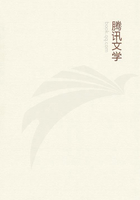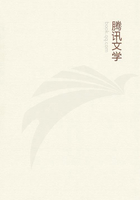"Quando Amor i begli occhi a terra inchina."When Love doth those sweet eyes to earth incline, And weaves those wandering notes into a sigh Soft as his touch, and leads a minstrelsy Clear-voiced and pure, angelic and divine, He makes sweet havoc in this heart of mine, And to my thoughts brings transformation high, So that I say, "My time has come to die, If fate so blest a death for me design."But to my soul thus steeped in joy the sound Brings such a wish to keep that present heaven, It holds my spirit back to earth as well.
And thus I live: and thus is loosed and wound The thread of life which unto me was given By this sole Siren who with us doth dwell.
As I look across the bay, there is seen resting over all the hills, and even upon every distant sail, an enchanted veil of palest blue, that seems woven out of the very souls of happy days,--a bridal veil, with which the sunshine weds this soft landscape in summer. Such and so indescribable is the atmospheric film that hangs over these poems of Petrarch's; there is a delicate haze about the words, that vanishes when you touch them, and reappears as you recede. How it clings, for instance, around this sonnet!
SONNET 191.
"Aura che quelle chiome."
Sweet air, that circlest round those radiant tresses, And floatest, mingled with them, fold on fold, Deliciously, and scatterest that fine gold, Then twinest it again, my heart's dear jesses, Thou lingerest on those eyes, whose beauty presses Stings in my heart that all its life exhaust, Till I go wandering round my treasure lost, Like some scared creature whom the night distresses.
I seem to find her now, and now perceive How far away she is; now rise, now fall;Now what I wish, now what is true, believe.
O happy air! since joys enrich thee all, Rest thee; and thou, O stream too bright to grieve!
Why can I not float with thee at thy call?
The airiest and most fugitive among Petrarch's love-poems, so far as I know,--showing least of that air of earnestness which he has contrived to impart to almost all,--is this little ode or madrigal. It is interesting to see, from this, that he could be almost conventional and courtly in moments when he held Laura farthest aloof; and when it is compared with the depths of solemn emotion in his later sonnets, it seems like the soft glistening of young birch-leaves against a background of pines.
CANZONE XXIII.
"Nova angeletta sovra l' ale accorta."
A new-born angel, with her wings extended, Came floating from the skies to this fair shore, Where, fate-controlled, I wandered with my sorrows.
She saw me there, alone and unbefriended, She wove a silken net, and threw it o'er The turf, whose greenness all the pathway borrows, Then was I captured; nor could fears arise, Such sweet seduction glimmered from her eyes.
Turn from these light compliments to the pure and reverential tenderness of a sonnet like this:-SONNET 223.
"Qual donna attende a gloriosa fama."
Doth any maiden seek the glorious fame Of chastity, of strength, of courtesy? Gaze in the eyes of that sweet enemy Whom all the world doth as my lady name!
How honor grows, and pure devotion's flame, How truth is joined with graceful dignity, There thou mayst learn, and what the path may be To that high heaven which doth her spirit claim;There learn soft speech, beyond all poet's skill, And softer silence, and those holy ways Unutterable, untold by human heart.
But the infinite beauty that all eyes doth fill, This none can copy! since its lovely rays Are given by God's pure grace, and not by art.
The following, on the other hand, seems to me one of the Shakespearian sonnets; the successive phrases set sail, one by one, like a yacht squadron; each spreads its graceful wings and glides away. It is hard to handle this white canvas without soiling. Macgregor, in the only version of this sonnet which Ihave seen, abandons all attempt at rhyme; but to follow the strict order of the original in this respect is a part of the pleasant problem which one cannot bear to forego. And there seems a kind of deity who presides over this union of languages, and who sometimes silently lays the words in order, after all one's own poor attempts have failed.
SONNET 128.
"O passi sparsi; o pensier vaghi e pronti"O wandering steps! O vague and busy dreams!
O changeless memory! O fierce desire!
O passion strong! heart weak with its own fire;O eyes of mine! not eyes, but living streams;O laurel boughs! whose lovely garland seems The sole reward that glory's deeds require;O haunted life! delusion sweet and dire, That all my days from slothful rest redeems;O beauteous face! where Love has treasured well His whip and spur, the sluggish heart to move At his least will; nor can it find relief.
O souls of love and passion! if ye dwell Yet on this earth, and ye, great Shades of Love!
Linger, and see my passion and my grief.
Yonder flies a kingfisher, and pauses, fluttering like a butterfly in the air, then dives toward a fish, and, failing, perches on the projecting wall. Doves from neighboring dove-cotes alight on the parapet of the fort, fearless of the quiet cattle who find there a breezy pasture. These doves, in taking flight, do not rise from the ground at once, but, edging themselves closer to the brink, with a caution almost ludicrous in such airy things, trust themselves upon the breeze with a shy little hop, and at the next moment are securely on the wing.
How the abundant sunlight inundates everything! The great clumps of grass and clover are imbedded in it to the roots; it flows in among their stalks, like water; the lilac-bushes bask in it eagerly; the topmost leaves of the birches are burnished. Avessel sails by with plash and roar, and all the white spray along her side is sparkling with sunlight. Yet there is sorrow in the world, and it reached Petrarch even before Laura died,--when it reached her. This exquisite sonnet shows it:-SONNET 123.
"I' vidi in terra angelici costumi."














